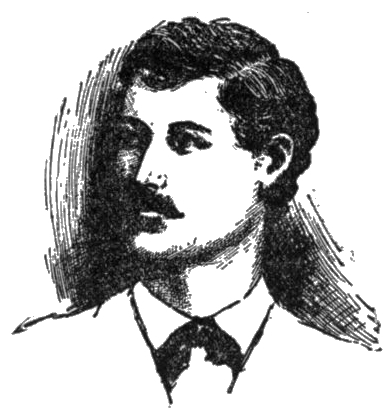CHAPTER XIX.
WHEN a long flight of exiled birds stand ready to leave the South land for their old home again, whence they fled before the stormy blasts—
As they are drawn up in a line, high in the mornin’ sky waitin’ for the leader’s signal to raise their wings and strike out northward through the pathless fields of blue—
If some cruel shot strikes down that gallant leader, the hull flock is bewildered and full of panic and distress for a time.
But a new leader takes his place, and the solid phalanx rises up and takes wing for their old home, which is again to them the new.
The flight goes on just the same, and perhaps no one but his mate feels the loneliness and emptiness of the clear blue sky.
Though mebby, if she is so blesséd, she may feel the waftin’ of shadow wings beside her, and a nearer presence than the livin’.
Felix took the place of leader in the enterprise, and though it wuz delayed for a little time, it went on to success. Though the great heart that planned it lay silent in death.
Perhaps Genieve felt that his influence wuz still guidin’ her, that he wuz helpin’ the colony still; that bowin’ down in the presence of the Crucified, he brought gifts of surer success to his people than he could if he wuz still with them in the mortal body.
Felix wuz a favorite with the company, and though he had not Victor’s genius nor the native gifts of prudence and foresight that he had possessed, his long apprenticeship to sorrow and peril had made him wise and patient.
He wuz helped, too, greatly by the calm fortitude and Christian principle of Cousin John Richard and the fervid devotion of Father Gasperin.
There wuz a rumor that the Government wuz bein’ importuned by one in high authority, and wuz only waitin’ to learn the success of this venture, to send Government vessels over with the freedmen, with help to maintain the poorer ones for a year and get them started in their new life. But it might have been only a rumor. As I said, Victor’s death made a delay in the exodus, and it wuz durin’ those weeks of delay that Genieve received a large packet of law letters.
Her father had died in France, and Genieve had been left his heiress. A goodly sum had been left to this lawyer if he wuz successful in findin’ his child. Perhaps by reason of this the search had proved successful.
Genieve wuz a great heiress, for Monseur De Chasseny had no children by his French marriage—his lawful wife wuz dead. And the memory of the great love of his life wuz with him to the last. In a will made on his death-bed, he left all his large fortune to Genieve, “the child of the only woman he had ever loved.”
So said a letter left in the same package with the will.
This wealth enabled her to do much for the colony, helpin’ them to good schools, good books, good food and clothin’, and the teachin’ and the trainin’ that would make them self-supportin’.
Genieve studied harder than ever, worked harder than ever for the good of her people, after the livin’ Victor passed from her life. The immortal Victor, the saint, the hero Victor, always stood beside her. He would not let her sink into the gloom and inactivity of hopeless sorrow. He nerved her to new activities. He held her hand that wrote stirrin’ appeals, and helpful, encouragin’ words for the New Republic. He inspired the vision that saw it risin’ fair and proud from the ashes of a dead past.
She studied history that she might help make a noble history for the new land; she studied law, and literature, and music, all with this sole ambition of helpin’ her mother’s race.
The children of the colony almost idolized her, and in their love and constant companionship she found her greatest earthly comfort.
She taught them all that she learned herself, taught them with the present love of all her lovin’ heart, and with the fur-seein’ eye of one who sees in this new generation the future blessing and regeneration of her people.
And above all other lessons she taught them the Bible with the childlike faith of one who sits at the feet of the Christ.
She studied it and taught it with the rapt vision and earnestness of a prophet who saw that the best future of her beloved New Land rested upon the victories of the bloodless armies of the cross.
She had the faith that Paul had when he gave utterance to these incomparable words, and she saw through faith that her race should “subdue kingdoms, work righteousness, stop the mouth of lions, out of weakness be made strong.”
Her people needed her; she wuz in no hurry to lay down her life-work. She wuz willin’ to stay in the vineyard and work as long as the Master willed.
But she felt that when the starry nightfall come and the workers wuz dismissed, the rest would be sweet. And oh! how wistfully she looked forward to that land that lay beyend the New Republic, where she should receive “her dead raised to life again.” When on the threshold of the new life Victor would meet her and lead her forward to Him that wuz slain. Where she would dwell with him forever in that continuin’ city which by faith she saw while yet in the body.

VICTOR.




